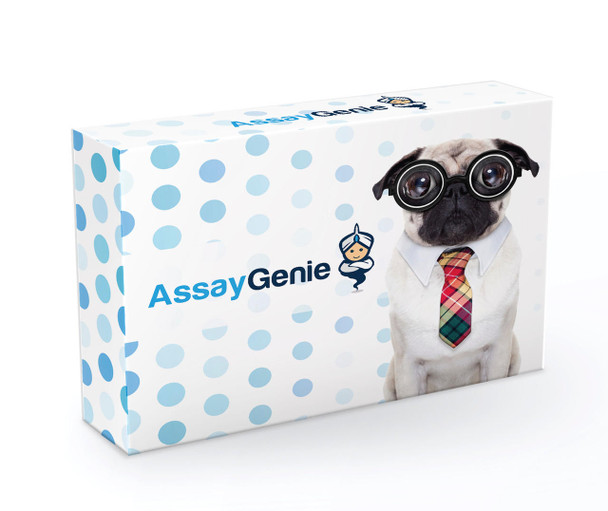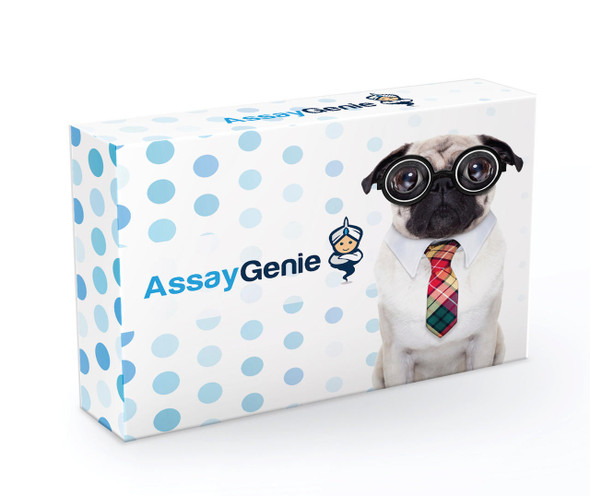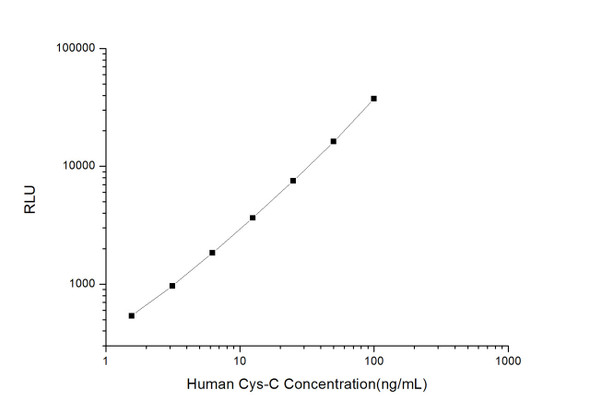Description
QuickStep Human Cys-C (Cystatin C) ELISA Kit
The QuickStep Human Cys-C (Cystatin C) ELISA Kit is a state-of-the-art assay developed to precisely quantify Cystatin C levels in human biological samples. Cystatin C, a small protein produced by all nucleated cells, serves as a valuable biomarker for renal function and is an essential indicator of glomerular filtration rate.
Elevated Cystatin C levels are associated with impaired kidney function and have been linked to various renal disorders and cardiovascular risks, making it a pivotal marker in clinical diagnostics and nephrology research. This high-sensitivity ELISA kit offers exceptional accuracy and consistency in measuring Cystatin C concentrations, allowing healthcare professionals and researchers to assess renal function with confidence. By measuring Cystatin C levels, this kit provides critical information on kidney health, disease progression, and response to therapeutic interventions. Manufactured under strict quality control guidelines, the QuickStep Human Cys-C ELISA Kit delivers reliable performance and precise results, ensuring the accuracy needed for clinical and research applications in nephrology and related fields. With its user-friendly design and superior sensitivity, this kit is an optimal choice for investigating renal function, monitoring disease states, and evaluating treatment outcomes. Rely on the precision and specificity of this ELISA kit to advance your research and clinical investigations into kidney function and associated conditions.
| Product Name: | QuickStep Human Cys-C (Cystatin C) ELISA Kit |
| Product Code: | AEES00637 |
| Assay Type: | Sandwich |
| Format: | 96 Assays |
| Assay Time: | 2.5h |
| Reactivity: | Human |
| Detection Range: | 0.31-20 ng/mL |
| Sensitivity: | 0.04 ng/mL |
| Sample Type & Sample Volume: | Serum, plasma, urine, saliva, 50μL |
| Specificity: | This kit recognizes Human Cys-C in samples. No significant or interference between Human Cys-C and analogues was observed. |
| Reproducibility: | Both intra-CV and inter-CV are < 10%. |
| Application: | This ELISA kit applies to the in vitro quantitative determination of Human Cys-C concentrations in serum, plasma, urine, saliva.Please consult technical support for the applicability if other biological fluids need to be tested. |
This ELISA kit uses the Sandwich-ELISA principle. The micro ELISA plate provided in this kit has been pre-coated with an antibody specific to Human Cys-C. Samples (or Standards) and biotinylated detection antibody specific for Human Cys-C are added to the micro ELISA plate wells. Human Cys-C would combine with the specific antibody. Then Avidin-Horseradish Peroxidase (HRP) conjugate are added successively to each micro plate well and incubated. Free components are washed away. The substrate solution is added to each well. Only those wells that contain Human Cys-C, biotinylated detection antibody and Avidin-HRP conjugate will appear blue in color. The enzyme-substrate reaction is terminated by the addition of stop solution and the color turns yellow. The optical density (OD) is measured spectrophotometrically at a wavelength of 450 ± 2 nm. The OD value is proportional to the concentration of Human Cys-C. You can calculate the concentration of Human Cys-C in the samples by comparing the OD of the samples to the standard curve.
| Kit Components: | An unopened kit can be stored at 2-8℃ for six months. After test, the unused wells and reagents should be stored according to the table below.
|
| 1. | Add 50μL standard or sample to the wells, immediately add 50μL Biotinylated Detection Ab working solution to each well. Incubate for 90 min at 37°C |
| 2. | Aspirate and wash the plate for 3 times |
| 3. | Add 100μL HRP conjugate working solution. Incubate for 30 min at 37°C. Aspirate and wash the plate for 5 times |
| 4. | Add 90μL Substrate Reagent. Incubate for 15 min at 37°C |
| 5. | Add 50μL Stop Solution |
| 6. | Read the plate at 450nm immediately. Calculation of the results |
Cystatin C is a non-glycosylated cysteine protease inhibitor with a molecular weight of 13 kDa. It is produced at a constant rate by nucleated cell and freely filtered by the renal glomerulus, and serum cystatin C is an established, novel marker of renal function. Cystatin C is a more specific marker of glomerular filtration rate than creatinine, because levels are independent of age, sex, muscle mass and diet [1]. In addition, high cystatin C is associated with elevated risk of death from myocardial infarction, stroke, and metabolic syndrome. Higher levels of cystatin C and the presence of certain isoforms have also been related to neurological and cerebral disorders such as cerebral amyloid angiopathy, amyotrophic lateral sclerosis, multiple sclerosis, and Alzheimer’s disease. Cystatin isoforms can be detected both in serum and cerebrospinal fluid and more than a dozen have been reported so far.






